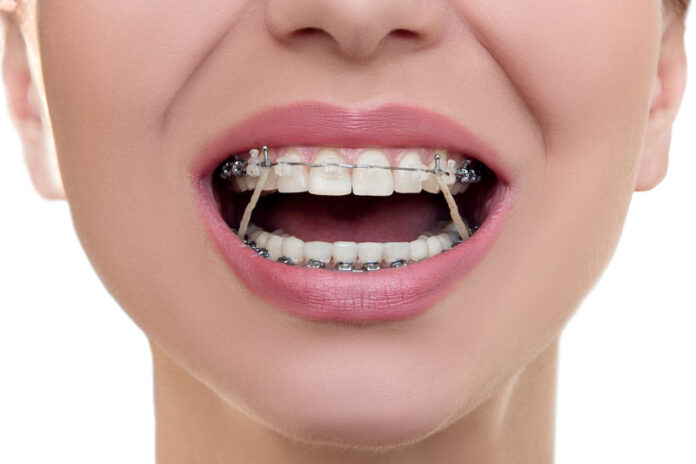When it comes to your smile, there’s nothing like the confidence that comes from having straight, healthy teeth. But the decision to get braces can often feel overwhelming. Whether you’re considering braces for yourself or your child, the question is: Do you really need them? It’s important to understand that braces are not just about achieving a perfect smile. They can have a significant impact on your overall oral health, so knowing whether or not you need them requires a careful assessment of several factors.
Understanding Braces and Their Purpose
Braces are dental devices used to correct misalignments in the teeth and jaw. They work by gradually shifting the teeth into better positions, improving both appearance and function. While the main benefit of braces is often considered to be cosmetic—improving the look of your smile—they also serve to address functional problems such as difficulty chewing, speaking, or maintaining oral hygiene.
Braces can address a range of dental issues, including:
- Crooked teeth: Teeth that are misaligned or overlap.
- Gaps between teeth: Large spaces between teeth.
- Overbite or underbite: When the upper and lower teeth don’t meet properly.
- Crossbite: When teeth in the upper jaw fall behind the lower jaw.
- Open bite: When the front teeth do not meet when the mouth is closed.
- Crowded teeth: When teeth overlap due to lack of space.
So, how do you know if you need braces? Let’s break it down.
1. Difficulty with Chewing or Biting
One of the most common reasons people need braces is because they have difficulty chewing or biting food properly. Misaligned teeth can make it harder to bite into food, chew effectively, or even speak clearly. If you experience frequent jaw pain, discomfort while chewing, or difficulty biting certain foods, it could be a sign that your teeth or jaw are not aligned properly. This is when braces can help restore function and alleviate discomfort.
2. Crooked or Misaligned Teeth
Perhaps the most obvious reason to get braces is when your teeth are visibly crooked or misaligned. Misalignment can not only affect the aesthetic of your smile but can also lead to long-term oral health issues. Crooked teeth can make it harder to brush and floss properly, which increases the risk of cavities, gum disease, and other dental problems.
If you notice that your teeth are not straight or that you have spaces between them, it might be time to visit an orthodontist. A consultation can help determine whether braces or other treatments like aligners would be the most appropriate solution.
3. Gaps Between Teeth
Some people have extra space between their teeth, often due to genetics or habits like thumb-sucking. While gaps between teeth may not cause significant issues with oral function, they can lead to concerns about appearance and self-esteem.
If you’re bothered by large gaps between your teeth, braces can be an effective solution to close them and give you a more uniform smile. An orthodontist will be able to determine if braces are necessary to fix this issue or if other options are available.
4. Speech Problems
Believe it or not, the alignment of your teeth and jaw can have a significant effect on your speech. A misaligned bite can make it harder to pronounce certain words or sounds correctly. If you’ve noticed that you or your child have trouble with speech or pronouncing words clearly, it could be related to dental alignment.
For example, an overbite can cause the upper teeth to extend too far over the lower teeth, which may impact speech. Braces can correct these issues and improve speech clarity.
5. Jaw Pain and Headaches
Another sign that braces may be necessary is chronic jaw pain or frequent headaches. Misaligned teeth and jaw issues, such as an overbite or underbite, can cause strain on the jaw muscles, leading to discomfort, jaw stiffness, and even tension headaches.
If you find yourself clenching or grinding your teeth, particularly at night, or experiencing frequent jaw pain, it’s worth discussing the possibility of braces with your dentist or orthodontist. Braces can correct bite issues, alleviating the pressure on your jaw and reducing pain.
6. Difficulty Maintaining Oral Hygiene
Maintaining proper oral hygiene is essential for preventing tooth decay and gum disease. When teeth are misaligned, it can be difficult to reach all areas of your teeth with a toothbrush and floss, leading to plaque buildup and an increased risk of cavities.
If brushing and flossing are challenging due to crooked or crowded teeth, braces may be a good option. By straightening your teeth, braces make it easier to clean them properly, promoting better oral hygiene and long-term dental health.
7. Self-Esteem and Confidence
While not directly related to oral health, it’s also important to consider the impact that crooked or misaligned teeth can have on your self-esteem. Many people who are self-conscious about their smiles find that correcting dental issues with braces boosts their confidence and improves their quality of life.
If you or your child feel embarrassed about the appearance of your teeth, braces can help create a smile that you’ll be proud to show off.
Conclusion: Should You Get Braces?
Ultimately, deciding whether to get braces involves considering both aesthetic and functional aspects of your dental health. If you’ve noticed any of the signs discussed earlier, it’s wise to schedule a consultation with an orthodontist. They will evaluate your teeth, discuss available treatment options, and help you determine if braces are the right choice for you.
Keep in mind that braces are not just about achieving a straighter smile for cosmetic purposes. They can greatly enhance your oral health, comfort, and self-confidence. During your consultation, the orthodontist will discuss the placement of orthodontic brackets, which are essential in guiding your teeth into their proper positions. If you’re unsure whether braces are necessary, seeking professional advice is the best step. After all, a healthy and properly aligned smile is an investment that pays off in both appearance and functionality.

